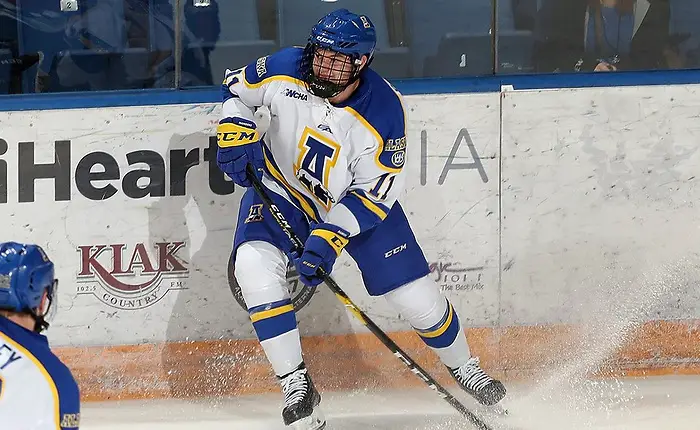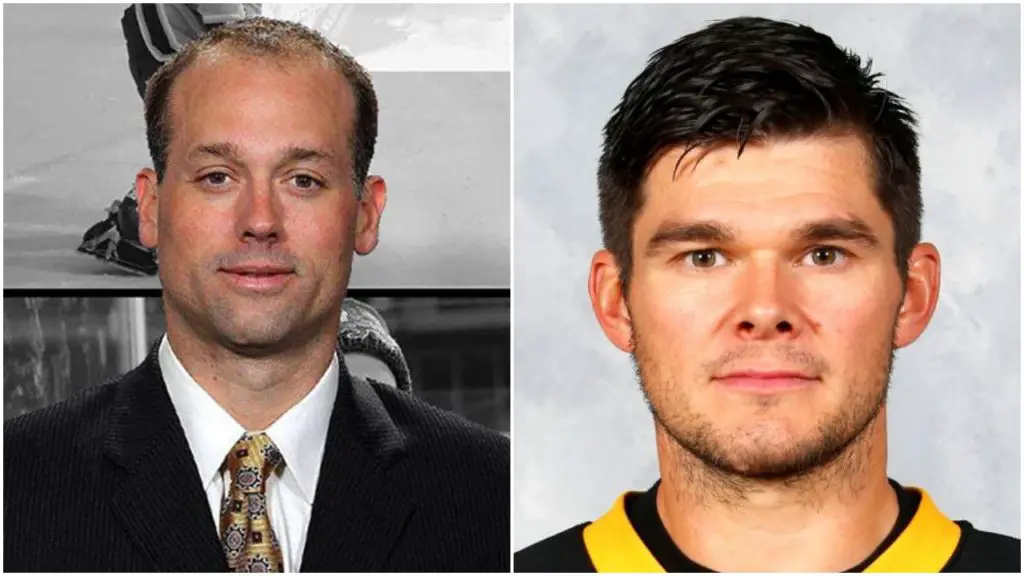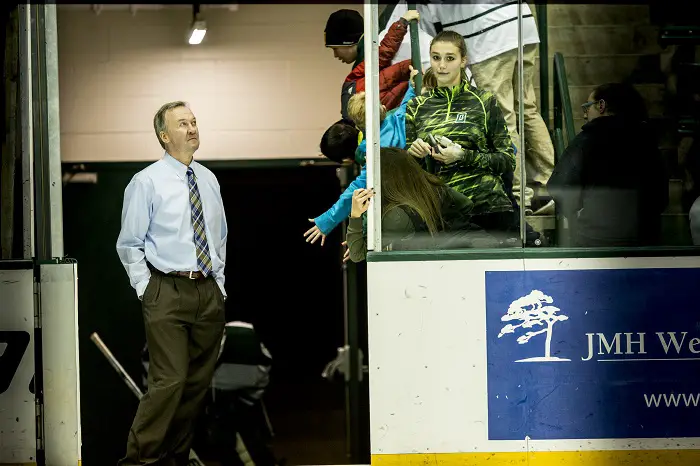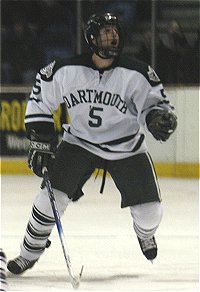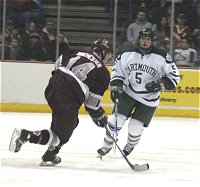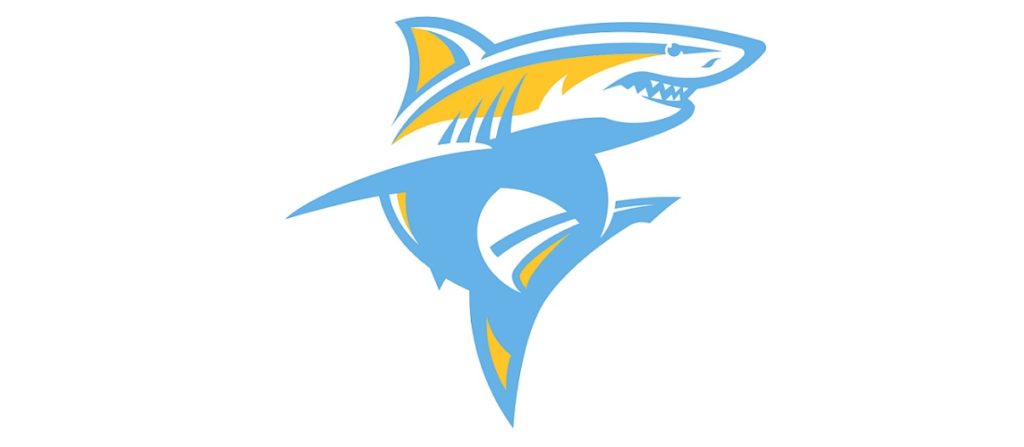
This is Part 1 of a three-part series looking at Long Island University’s impending Division I men’s hockey program.
Long Island University’s recent announcement that men’s hockey is coming to campus this fall carried one guarantee amid its exciting surprise and confusion.
The annual realignment conversation, a hot stove into which conversation normally flurried, immediately ignited with a thunderbolt flash. An offseason staple once again began breathing a rapid heartbeat and generated hundreds of speculative permutations, all of which centered around the Sharks.
“We’re going to play this season as an independent,” LIU athletics director Dr. William Martinov said of the team’s first year. “We’ll get some games. We don’t think it’s going to be a full, 34-game maximum schedule, but as we build a schedule and add conference membership, we’re thinking a conference will help us with those games.”
Finding an appropriate conference is a difficult and puzzling piece of the Sharks’ announcement because it’s seemingly the most ambiguous area of college hockey. Their intention to play hockey this fall means the team won’t play a full schedule, a fact willingly embraced as part of a phase-in process over a couple of seasons.
“If we can play 20 games with the right coach and staff, it’ll give our (student-athletes) the right experience and that’s fantastic,” he said. “That’ll set us up for the second year or third year when we can gain more confidence. We’ll be a more mature team every year, and we can start scheduling schools that may or may not be in our (future) conference.”
Figuring out the timeline is complicated but it becomes more complex in its deeper reaches.
LIU is in the Northeast Conference for the majority of its non-hockey sports, a league it shared with Merrimack, Robert Morris and Sacred Heart. All three sponsor Division I hockey in either Hockey East or Atlantic Hockey, both of which have 11 teams. An odd number is itself a scheduling hurdle for both leagues, so there’s been a reasonable passing mention for both conferences to at least look at the Sharks from a sky-high, 50,000-foot view.
Both leagues denied contact with the Sharks. Hockey East noted it had calls with men’s and women’s coaches and administrators where LIU was not discussed, a sentiment shared by the third eastern conference, ECAC; commissioner Steve Hagwell commented that his league had not discussed nor received contact from representatives from LIU.
For Atlantic Hockey, a natural tie exists because there’s a relationship between LIU and the league front office. The Sharks’ women’s program joined the New England Women’s Hockey Alliance last season, and the league’s commissioner, Bob DeGregorio, is the commissioner of both Atlantic Hockey and its spiritual women’s counterpart, College Hockey America.
Despite that connection, Atlantic Hockey also confirmed it has not received any inquiry about membership.
LIU did confirm that it notified the Northeast Conference about its intent to start men’s hockey. When emailed, the NEC responded through Ron Ratner, the senior associate commissioner for public relations, new media, and television. He commented that commissioner Noreen Morris did not have anything to share about hockey at this point, but he said that the conference would be discussing hockey during its spring meetings over the next month.
It means the Sharks’ future is still unclear to the college hockey universe.
“We’ve had contact,” Martinov said of his school’s aspirations. “Once the announcement was made, it was clear that if we hadn’t talked to them before, we were talking to other folks. We’re in the process of working on that.”
It points LIU into a period of Division I independence, which was expected by the late announcement. Currently, only one team — Arizona State — plays a fully independent schedule, though Alaska, Alaska Anchorage and Alabama Huntsville are likely heading into that group after the rest of the WCHA breaks away to form the new CCHA after the 2020-21 season.
The Sun Devils just finished their fourth season of independent scheduling and provide a window into at least an example of the potential challenges for LIU. They spent one year prior to that as a transition team with an abbreviated Division I schedule after moving away from club roots dating back to the 1970s.
“We thought we needed a conference when we joined Division I,” ASU coach Greg Powers said. “But if I could go back in time, I’d say that I wanted to take a few years to get our house in order playing an independent schedule. That would’ve enabled us to get the landscape down for Division I college hockey before crossing that (league) bridge when it became appropriate.”
Arizona State is incredibly unique for a number of reasons. With respect to scheduling, the team drew top-flight teams right off the jump and played Wisconsin and UMass Lowell during its hybrid season. In its second year, it hosted Harvard and Michigan, and the steady growth of desert hockey eventually led Boston University and Penn State to play out west, and Michigan State, Boston College, and Denver all traveled over the past two seasons.
“The biggest compliment to the body of college hockey is that teams were so welcoming and willing to play us,” Powers said. “They helped us fill out a schedule, and teams have been more than willing to come to Arizona to give us home games. We’ve had big-time programs out here like Boston University, Michigan, Ohio State, Michigan State, UMass Lowell and Denver. The body of hockey was incredibly welcoming in that regard, and it really helped us launch our program.”
It’s tough to analyze LIU through that Arizona State lens, just as it’s difficult to understand the Sharks through anyone else’s viewpoint. Robert Morris, for example, found itself joining College Hockey America when Findlay created an immediate opening in the league, and Penn State’s arrival coincided with the creation of the Big Ten. Both schools intended to play an independent schedule, though RMU scrapped its intention almost immediately by joining the CHA.
“We were planning to be independent,” RMU head coach Derek Schooley said. “Then the CHA needed a sixth school when Findlay dropped its program. We joined that league straight off the bat, and it gave us 20 of our 30-plus games in the first year. Whether it had been the CHA or, at the time, the MAAC, we felt it was important to join a conference based on proximity to other schools. The CHA had Niagara and Wayne State, and the MAAC had Mercyhurst and Canisius. Being able to guarantee close-proximity games against those schools was important to us.”
“The conference was a given (for Penn State),” Nittany Lions coach Guy Gadowsky said. “When there’s (enough) teams sponsoring a sport, the Big Ten has a league. That was very part of the expectation or a given. I know the plan was to have Penn State play two independent years to get ready to compete, but (the Big Ten formation) got moved up by a year.”
It’s a complex and difficult conversation built on competing viewpoints and unique outlooks or expectations. RMU played less than a handful of non-conference games at home but lived in a world with two more conferences than currently exists. One of those leagues — the CHA — provided the program with a backstop of home games.
“Our location was good,” Schooley said. “We played in RPI’s tournament in Albany that first year and played at Miami. Bentley came to play us because we were willing to play there the next year. We had a home-and-home with Canisius.”
Penn State played a hybrid schedule but moved home games around its native state. It capitalized on the Nittany Lion brand and an explosion of support that invigorated its fan base. Instead of playing in State College, the team moved to Wilkes-Barre and Philadelphia with additional games in Pittsburgh. It played at RMU before scheduling the Colonials in the Three Rivers Classic, and the third-place game gave Penn State a third game in the Steel City, against Ohio State.
“It wasn’t difficult for us to get non-conference games because of the excitement around the program,” Gadowsky said. “The administration did a good job of planning our games around the state. They did a really good job of taking our product around the state because our old arena couldn’t accommodate enough alumni or supporters. So it was a great idea that was very well received.”
That’s very different from the travel tax placed on Arizona State. The Sun Devils frequently leave the desert even though the home-road ratio steadily shrank over time. This past season witnessed three of five weekends on the road against Minnesota State, Air Force and Alaska to start the year, and trips later in the year went to Brown, Clarkson and Atlantic Hockey’s Holy Cross and Bentley.
That came a year after Arizona State earned an NCAA tournament berth with only four home games after Jan. 1. The team’s travel late in the year was especially difficult with three straight series at Cornell, Boston University and RIT.
“It’s not easy,” Powers said of his team, “and piecing a schedule that doesn’t kill your team is probably the most difficult part of my job. You know you’re going to have to travel, and we know we have to be open to travel to get games. You hope that teams return that favor.”
To its credit, LIU is embracing the challenge. The school is ramping up a team on less than a year’s notice without a club team from which to transition, and it doesn’t have a clear conference future. That seems crazy, but the Sharks are seeing and picking their opportunities.
Martinov isn’t expecting a full slate and is instead looking inward for guidance from a women’s program that played 29 games and won the NEWHA postseason championship in its first season. LIU played UConn and Wisconsin at home to start the season, with one of the games against the Badgers at Nassau Coliseum. Road series at both Yale and RIT provided non-league competition in its first year.
“It’s a challenge, and that’s a matter of fact,” Martinov said. “We’re in May and trying to put together a schedule, and other teams have their schedules completed from a while ago. That’s a challenge by itself. Having that said, there are opportunities. We’re looking at all possibilities to build a good experience for this first year with the idea that it’s only going to get better.
“In the first year (of our women’s team), we had success as conference tournament champions, but we played Wisconsin at Nassau Coliseum. That was fantastic for our first year. It was great for Wisconsin to show a love of the game to help us, and it was great for us to play at Nassau against a national championship team. We went through women’s program development and saw how that worked, but we just have to do it (with men’s) on a shorter timeline.”
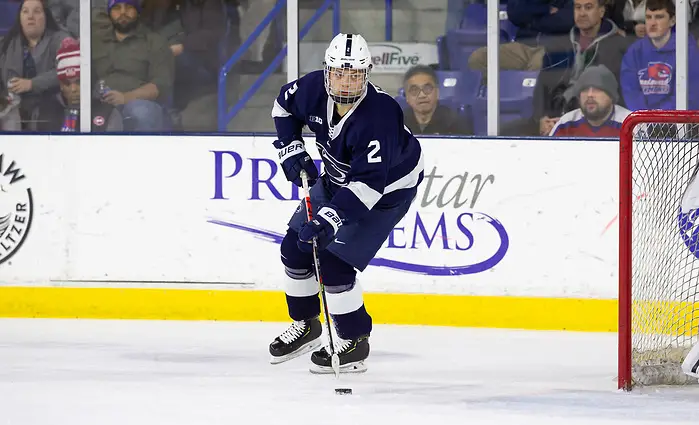

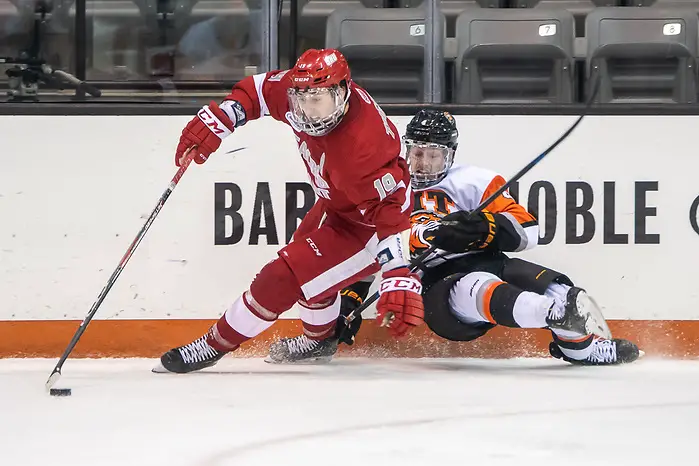
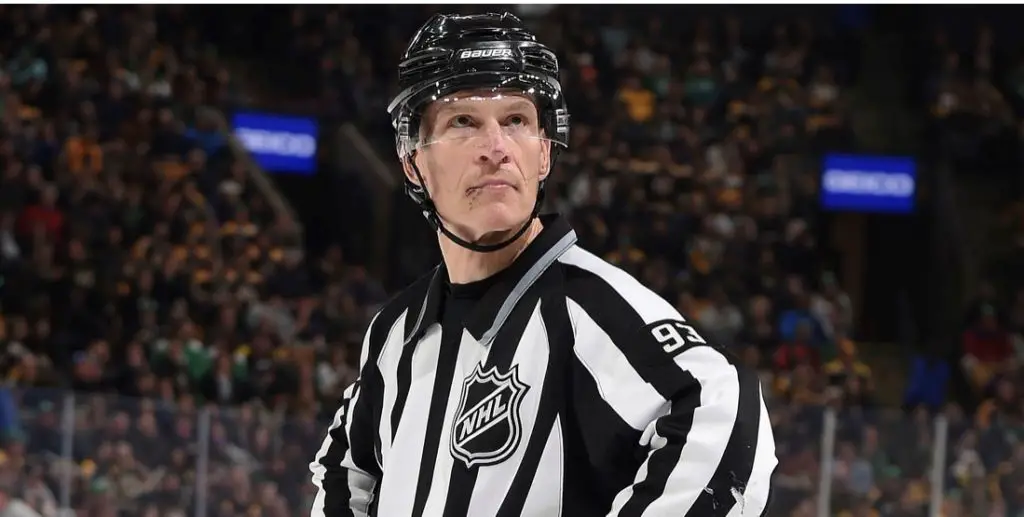

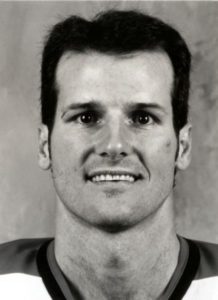
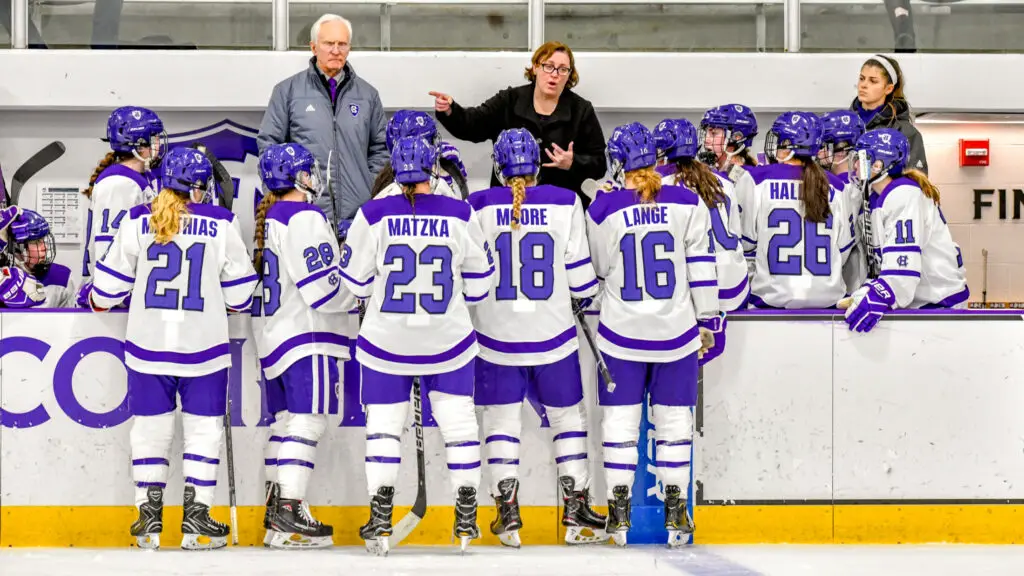
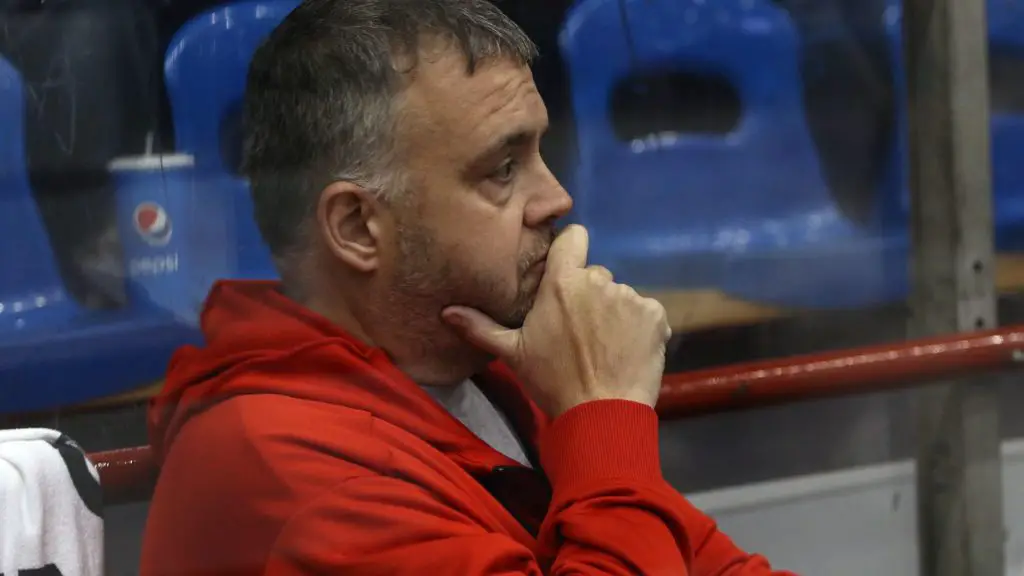
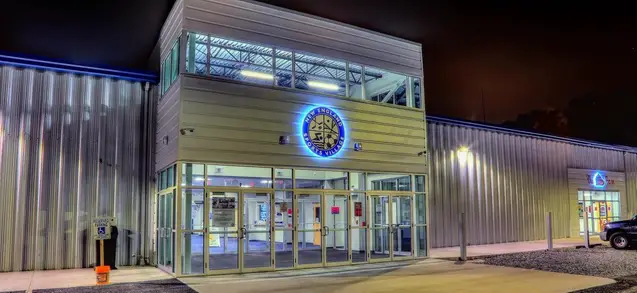
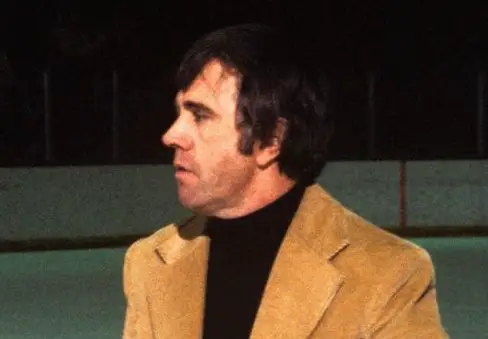
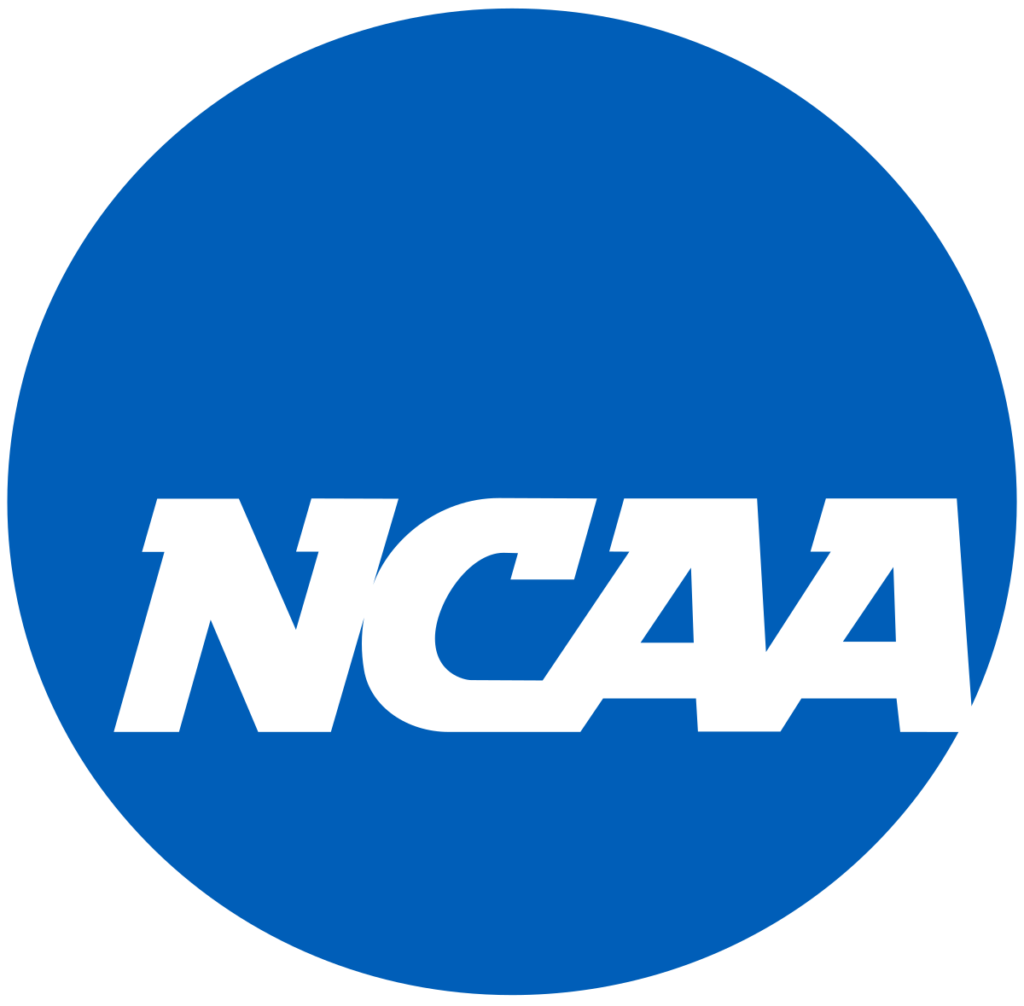

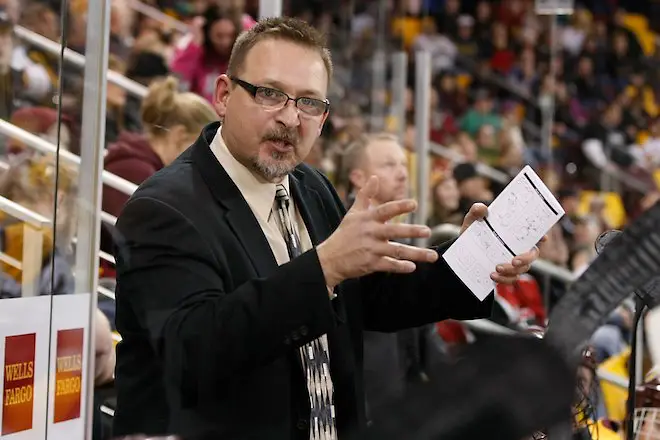
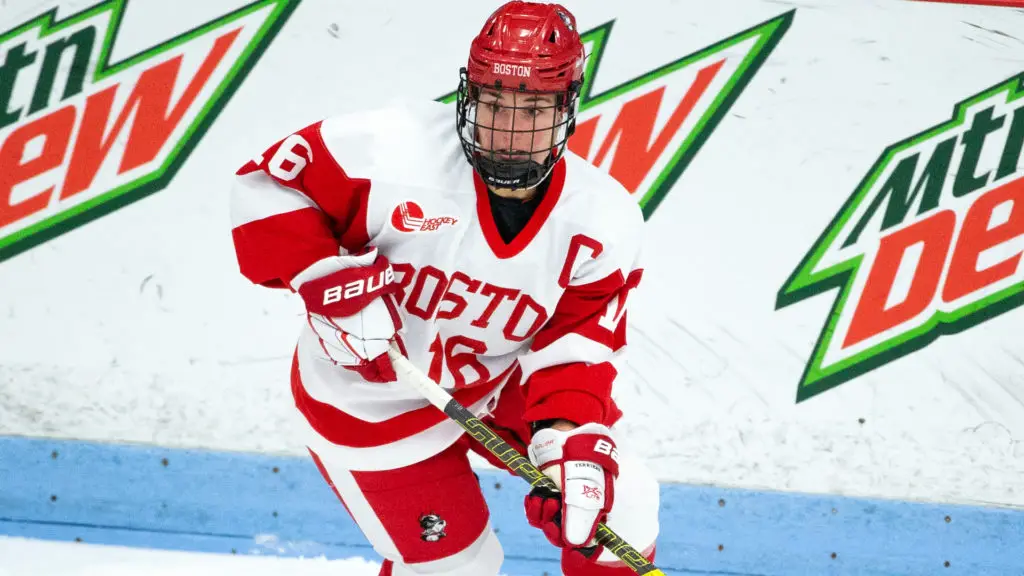
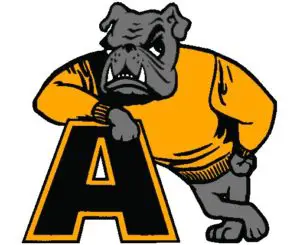 Adrian’s men’s and women’s teams will play outdoors in Toledo at Winterfest 2020 next January.
Adrian’s men’s and women’s teams will play outdoors in Toledo at Winterfest 2020 next January.